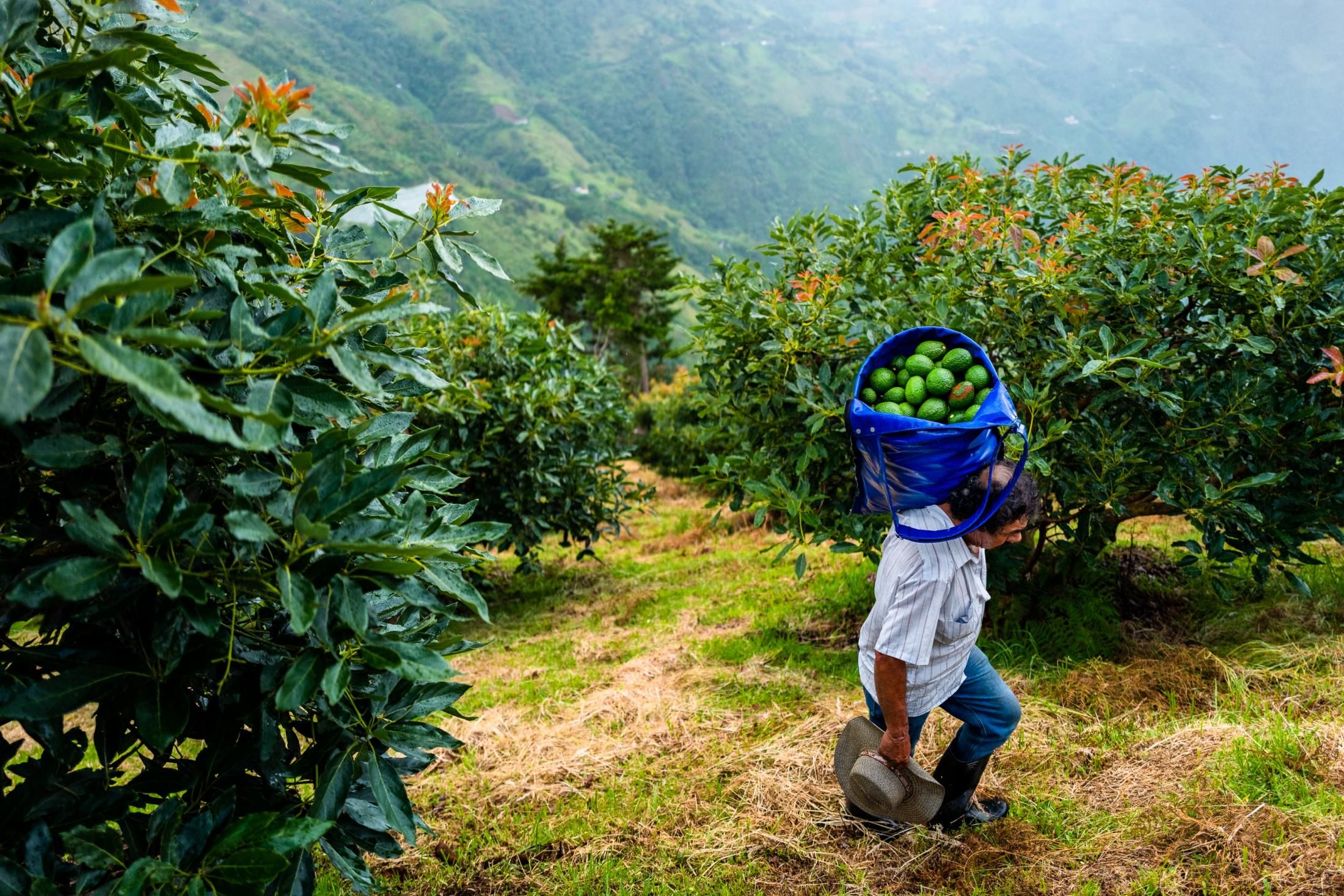
Russia's back and forth with Ukraine wheat exports—first accepting a deal to allow their shipment, then threatening to block them, and apparently agreeing to allow them to be released again - is yet one more illustration of the use of food as a weapon.
These networks allow powerful actors to act unchecked, as they also stymie the ability of local populations to provide and care for themselves.
As the logic goes, Russia controlling Ukrainian food exports is meant to compel others, specifically, the United States and European states, to negotiate. That Russia has leverage in attempting such machinations is due to the fact that Ukraine is a primary exporter of grain staples to countries around the world. For instance, in 2021, Ukraine was the fifth largest exporter of wheat and fourth largest of corn. Meanwhile, many of the countries that rely on Ukrainian wheat imports, especially those in Africa, have been suffering years of prolonged drought. The United Nations' World Food Programme estimates that 47 million more people in sub-Saharan Africa than compared to last year—a 17% increase—will experience acute hunger as the conflict in Ukraine continues.
Still, that one conflict, in a relatively short period of time, can generate such serious problems in terms of food access belies deeper problems in global supply chains, especially with respect to agriculture.
Put otherwise, Russia's leverage is due to the structure of global trade networks that are dominated by corporations and wealthy states. These networks allow powerful actors to act unchecked, as they also stymie the ability of local populations to provide and care for themselves.
It's not just Ukraine's place in world agriculture where we see this problem.
For instance, just four corporations control over 50% of the world seed supply, as another four handle 75% of grain distribution internationally. That so few actors have so much power, in no small part, is due to the promotion of free trade policies by international organizations such as the World Trade Organization (WTO). Specifically, the quest to lower tariffs has allowed corporate actors to acquire commodities and speculate over their value with ease, as family farmers globally suffer financial instability.
This should prompt us to reconsider how Africa has come to rely so heavily on importing Ukrainian grain. Hunger is a problem on the continent due to many factors, for instance, how climate change has generated severe droughts that have decimated domestic food production. Still, as natural disasters also have a political history—something that the late, great Mike Davis taught us in his study of nineteenth century famines in India—we cannot discount the role that repealing domestic protections since the 1980s has had on the ability of local populations in Africa to figure out how to grow food for themselves and weather troubling times.
Additionally, Russia is not the only actor to treat food as a bargaining chip to seek political influence.
Other examples include how the North Korean government regularly uses its own population, with their chronic hunger problems, in negotiations with the US over nuclear weapons.
There's also the former US Secretary of Agriculture, Earl Butz, who back in the 1970s saw the provision of food aid as a way to undermine the support of Communist movements and governments around the world.
Earlier cases include how the Prussians, during their siege of Paris during the Franco-Prussian War in the 1870s, cut supply chains in and out of the city, forcing French citizens to eat their pets and zoo animals. There's also the Lieber Code, which is considered one of the first modern codes for military conduct, which was created during the US Civil War. Instead of removing food from the realm of combat, it was written to allow Union forces to lawfully 'to starve the hostile belligerent, armed or unarmed, so that it leads to the speedier subjection of the enemy.'
The real problem with using food in this way, as the latest in the Ukraine/Russia grain drama illustrates, is that the world's poorest and most vulnerable suffer when dominant players turn basic food items into pawns in a potentially fatal chess match.
Our global food system doesn't have to operate this way.
Transnational organizations such as La Via Campesina (LVC) have emerged—with the demand of food sovereignty—to end the weaponization of food.
Critical to this effort is democratizing food production.
Democratizing food production, particularly, means promoting farmer and worker control of agriculture. Planting and operating community gardens are a local form of regaining food sovereignty. Contacting politicians in D.C. once the new Congress takes over next year who will craft the Farm Bill—the centerpiece legislation that sets policies concerning commodity pricing, crop insurance, and conservation—is another, higher level option to seek power. Protesting the free trade agenda of the WTO, as LVC members have done historically, most recently in June of this year, is yet another example of democracy of action.
Overall, food ought to bring us together, which most often happens when we eat together during ceremonies and holidays. Food shouldn't be an instrument in power politics, which subjects the most oppressed to still further unnecessary harm. Movements such as LVC fault our global system for allowing such dynamics to exist. By embracing food sovereignty, hopefully, we can work together in making a more democratically controlled, local food system that benefits everyone instead of the dominant.
This content originally appeared on Common Dreams - Breaking News & Views for the Progressive Community and was authored by Anthony Pahnke.
Anthony Pahnke | Radio Free (2022-11-05T11:25:26+00:00) The Global Food System Enables Russia to Use Food as a Weapon. Retrieved from https://www.radiofree.org/2022/11/05/the-global-food-system-enables-russia-to-use-food-as-a-weapon-2/
Please log in to upload a file.
There are no updates yet.
Click the Upload button above to add an update.